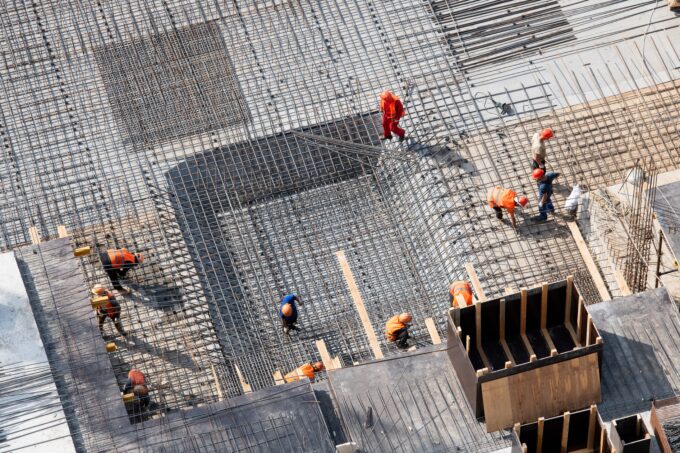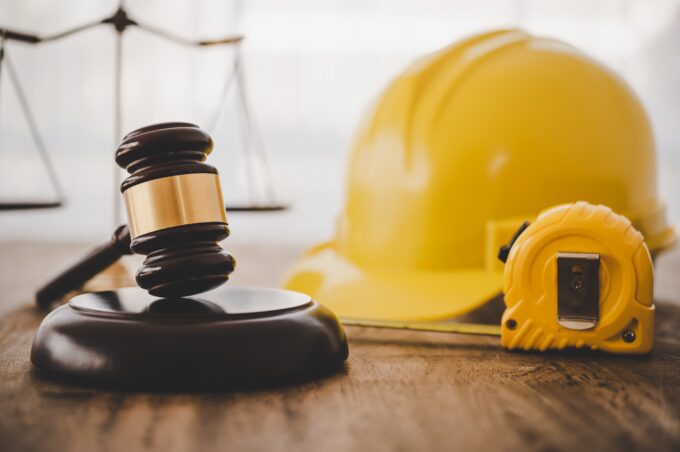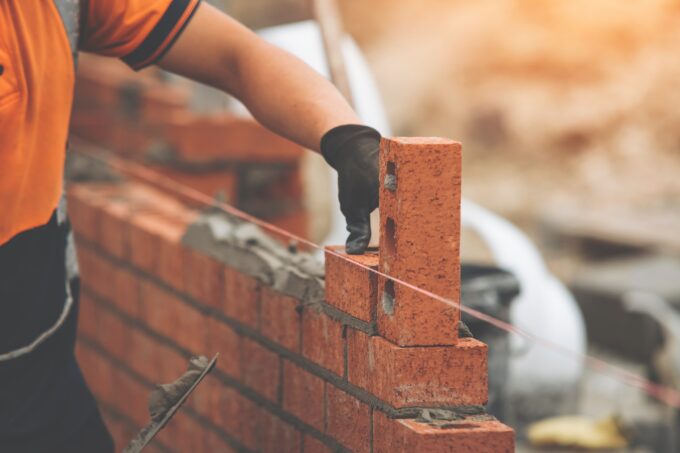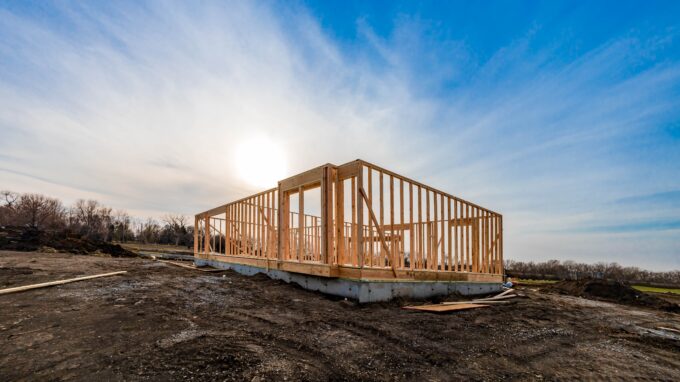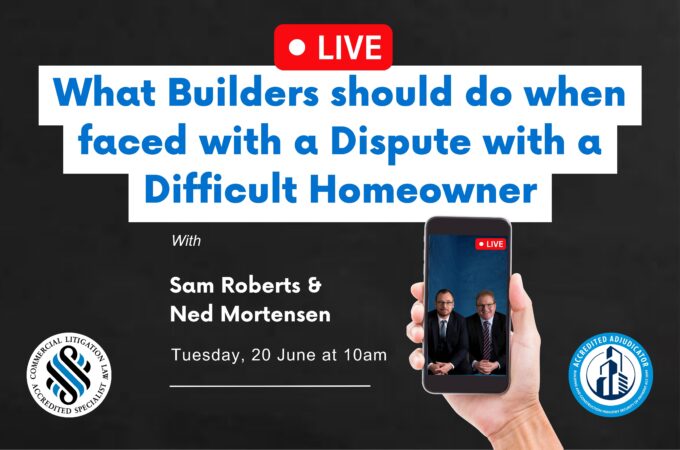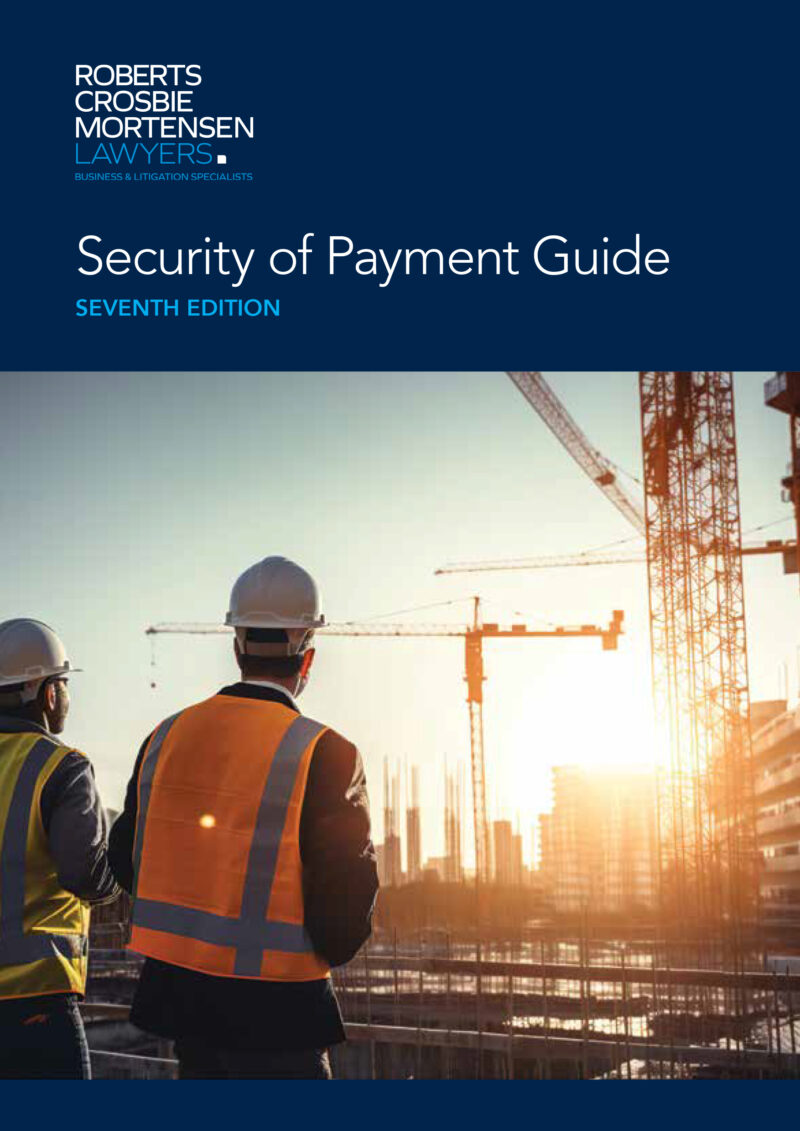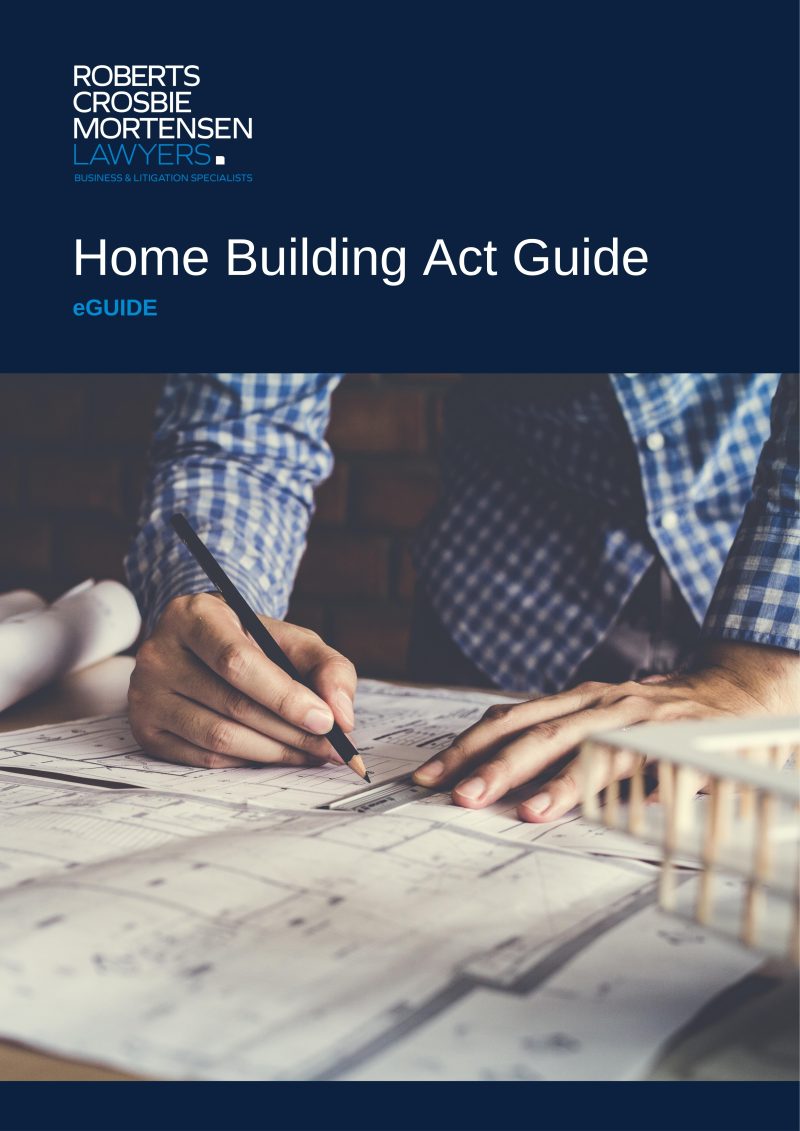If you’re a builder or a home owner involved in a residential building dispute, you need to act quickly to ensure that your rights are best protected.
Prevention is better than cure
Typically, home owners are provided with ‘standard form contracts’ by a builder on a ‘take it or leave it’ basis and then sign them with little or no regard for their contents.
Similarly, builders often use contracts provided by industry associations without regard for their own individual circumstances or risks that may be unique to the project that they’re about to undertake.
Builders and home owners alike should beware; one size does not fit all.
At Roberts Crosbie Mortensen Lawyers, we are very familiar with the common standard form contracts used by builders, and recommend the addition of special conditions tailored to suit your individual circumstances and project. An early consultation with us prior to signing a contract will also provide an opportunity to ask any questions that you may have and to help you to understand what it is you’re agreeing to.
When a dispute arises
Most building contracts contain specific steps that need to be followed when a dispute arises. Failing to follow these steps carefully can damage your position if the dispute is not resolved and moves to Court or Tribunal proceedings.
It is important to get legal advice at the earliest opportunity to mediate and ensure that you meet all of your contractual obligations that arise because of the dispute. Usually this will be as soon as it appears likely that a dispute will arise.
Disputes about quality of work or incomplete work
In most contracts, the rights of a home owner to require the rectification of defects by a builder prior to practical completion are very limited, so if the build is not yet complete and you consider the work to be defective, you should speak to one of our specialist building and construction lawyers before acting.
If the works have reached practical completion and you consider the works to be defective, , the first step is usually to give a written notice to the builder identifying the works that you consider to be defective. The notice should state that you require the works to be rectified, and allow a reasonable time for the builder to do so. Failing to give the builder an opportunity to rectify their work can be damaging to any future claim for rectification that you may have.
Typically the contract will make provision for the issuing of such a notice, therefore, in each case it is essential to consider the terms of the contract to ensure that the notice is issued consistently with them.
When you cannot agree
It’s not uncommon for builders and their clients to disagree about whether works are actually defective. If such an impasse arises, it’s time to bring in an independent expert Building Consultant to offer advice and prepare a Defects Report. Be warned, not all Building Consultants are the same. Many Consultants are overzealous and can give clients a badly distorted picture of their true position as they strive to find as many “defects” as possible. Other consultants are inexperienced and do not properly interpret codes and standards sufficiently to protect their client’s interests.
It’s always best to consult first with a Solicitor experienced in building disputes that can guide you through the process and refer to you a competent Building Consultant that is right for your needs.
Refusal to rectify
If the builder will still not repair defects identified by an expert report, they may be in breach of the contract or the statutory warranties implied by the Home Building Act 1989. The matter should then be referred to Fair Trading and if it still cannot be resolved, proceedings should then usually be commenced in the NSW Civil and Administrative Tribunal. Outcomes from the Tribunal include Orders for the builder to rectify works or the award of compensation of an amount that will enable the home owner to have the defects rectified by others.
Parties to a dispute in the Tribunal can be self represented in some types of matters. However, your chances of success will always be best if you seek the help of a Solicitor experienced in building disputes to assist in the preparation of your case and to represent you at directions and hearings.





